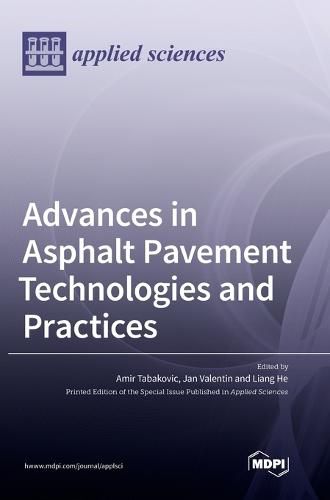Readings Newsletter
Become a Readings Member to make your shopping experience even easier.
Sign in or sign up for free!
You’re not far away from qualifying for FREE standard shipping within Australia
You’ve qualified for FREE standard shipping within Australia
The cart is loading…






This title is printed to order. This book may have been self-published. If so, we cannot guarantee the quality of the content. In the main most books will have gone through the editing process however some may not. We therefore suggest that you be aware of this before ordering this book. If in doubt check either the author or publisher’s details as we are unable to accept any returns unless they are faulty. Please contact us if you have any questions.
Unlike other construction materials, road materials have developed minimally over the past 100 years. However, since the 1970s, the focus has been on more sustainable road construction materials such as recycled asphalt pavements. Recycling asphalt involves removing old asphalt and mixing it with new (fresh) aggregates, binders, and/or rejuvenators. Similarly, there are various efforts to use alternative modifiers and technical solutions such as crumb rubber, plastics, or various types of fibres. For the past two decades, researchers have been developing novel materials and technologies, such as self-healing materials, in order to improve road design, construction, and maintenance efficiency and reduce the financial and environmental burden of road construction.
This Special Issue on "Advances in Asphalt Pavement Technologies and Practices" curates advanced/novel work on asphalt pavement design, construction, and maintenance. The Special Issue comprises 19 papers describing unique works that address the current challenges that the asphalt industry and road owners face.
$9.00 standard shipping within Australia
FREE standard shipping within Australia for orders over $100.00
Express & International shipping calculated at checkout
This title is printed to order. This book may have been self-published. If so, we cannot guarantee the quality of the content. In the main most books will have gone through the editing process however some may not. We therefore suggest that you be aware of this before ordering this book. If in doubt check either the author or publisher’s details as we are unable to accept any returns unless they are faulty. Please contact us if you have any questions.
Unlike other construction materials, road materials have developed minimally over the past 100 years. However, since the 1970s, the focus has been on more sustainable road construction materials such as recycled asphalt pavements. Recycling asphalt involves removing old asphalt and mixing it with new (fresh) aggregates, binders, and/or rejuvenators. Similarly, there are various efforts to use alternative modifiers and technical solutions such as crumb rubber, plastics, or various types of fibres. For the past two decades, researchers have been developing novel materials and technologies, such as self-healing materials, in order to improve road design, construction, and maintenance efficiency and reduce the financial and environmental burden of road construction.
This Special Issue on "Advances in Asphalt Pavement Technologies and Practices" curates advanced/novel work on asphalt pavement design, construction, and maintenance. The Special Issue comprises 19 papers describing unique works that address the current challenges that the asphalt industry and road owners face.